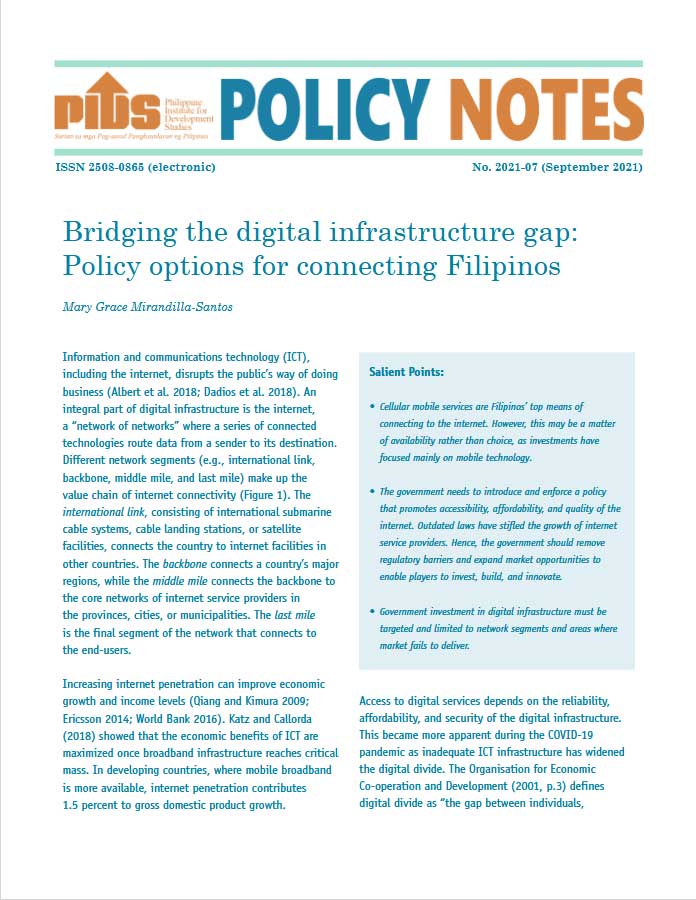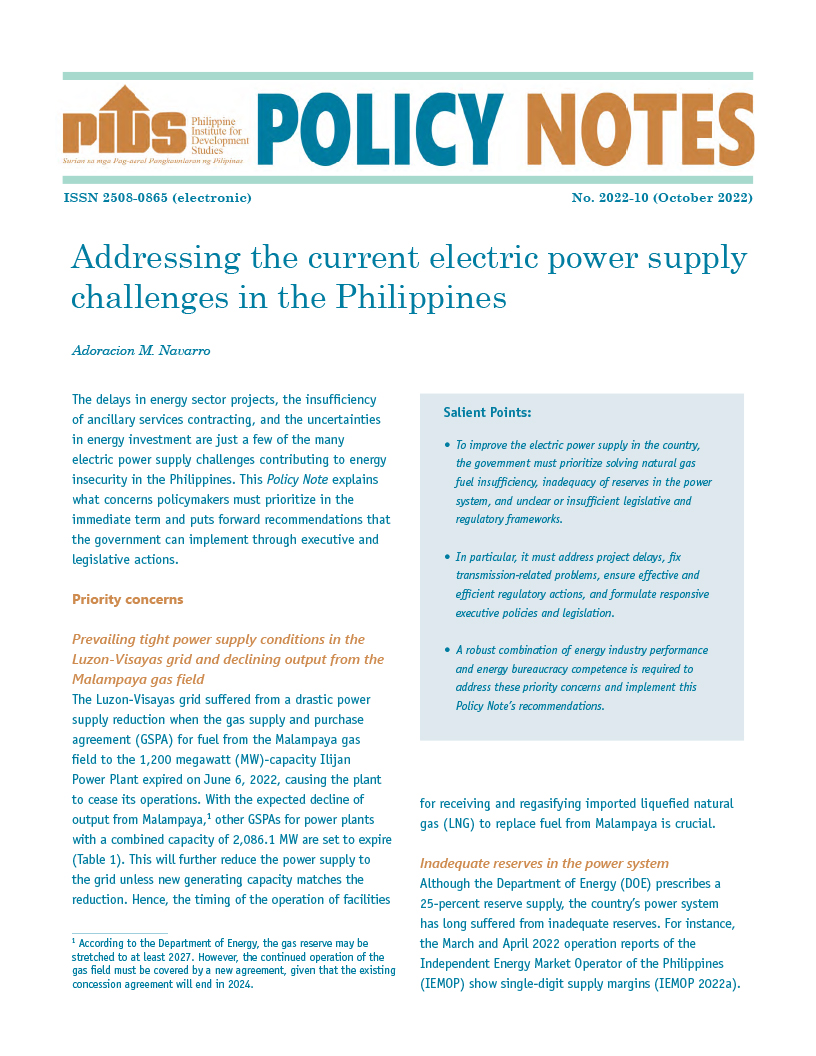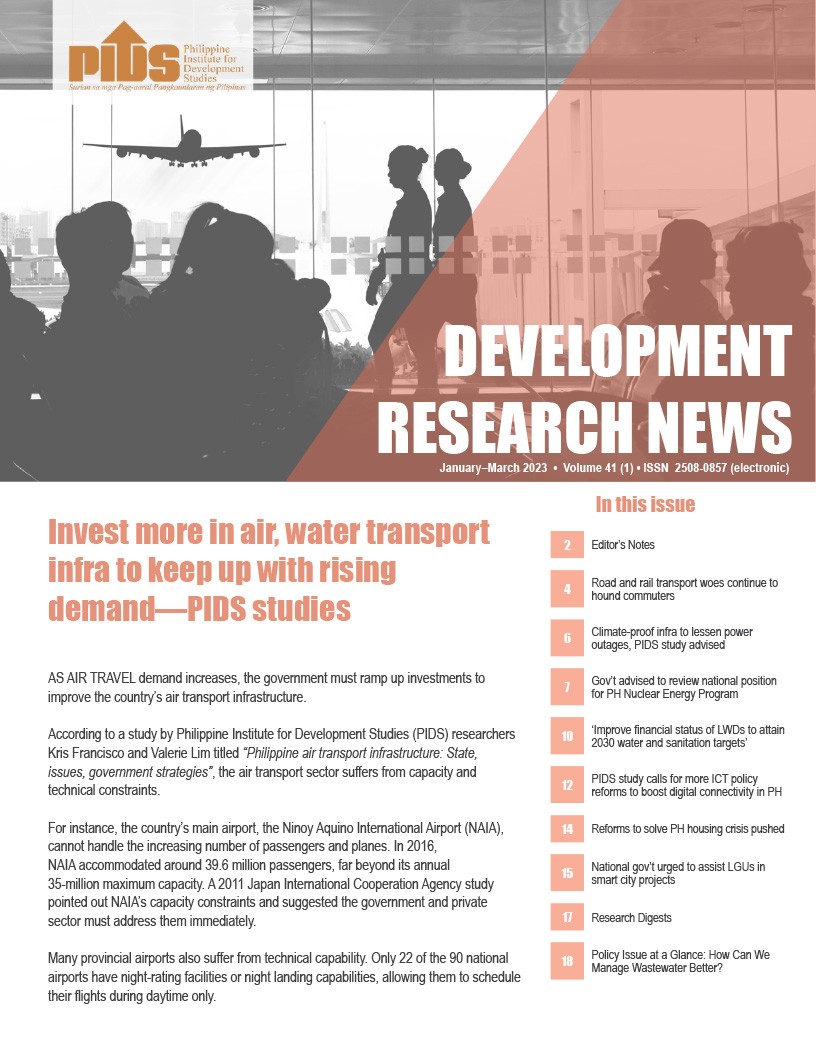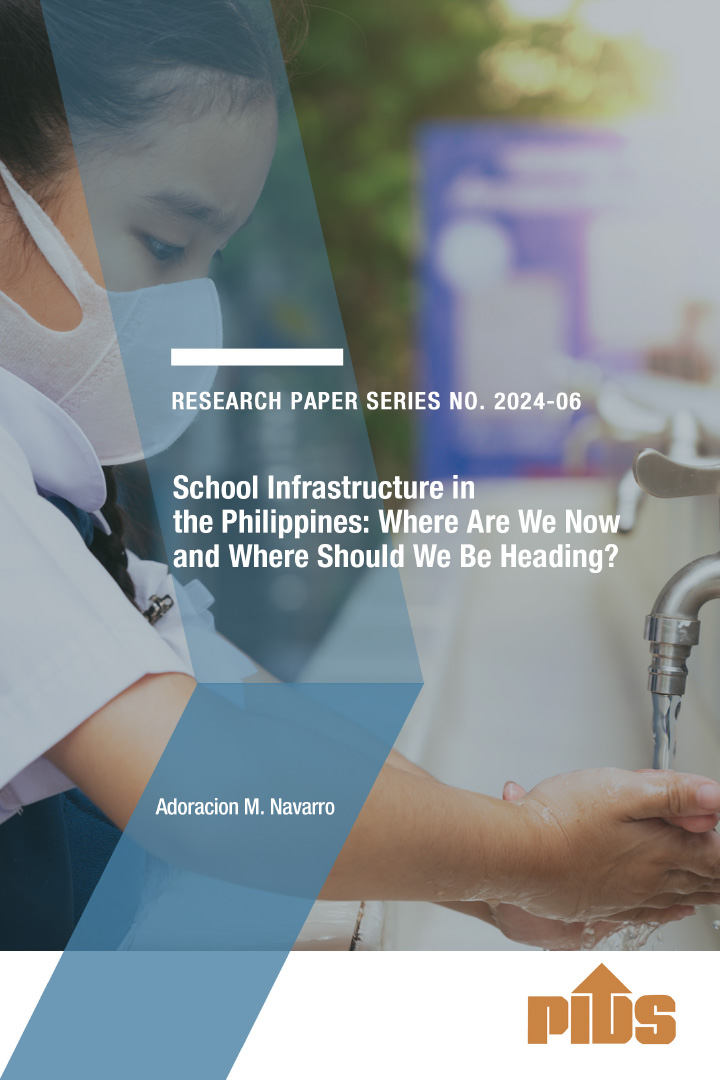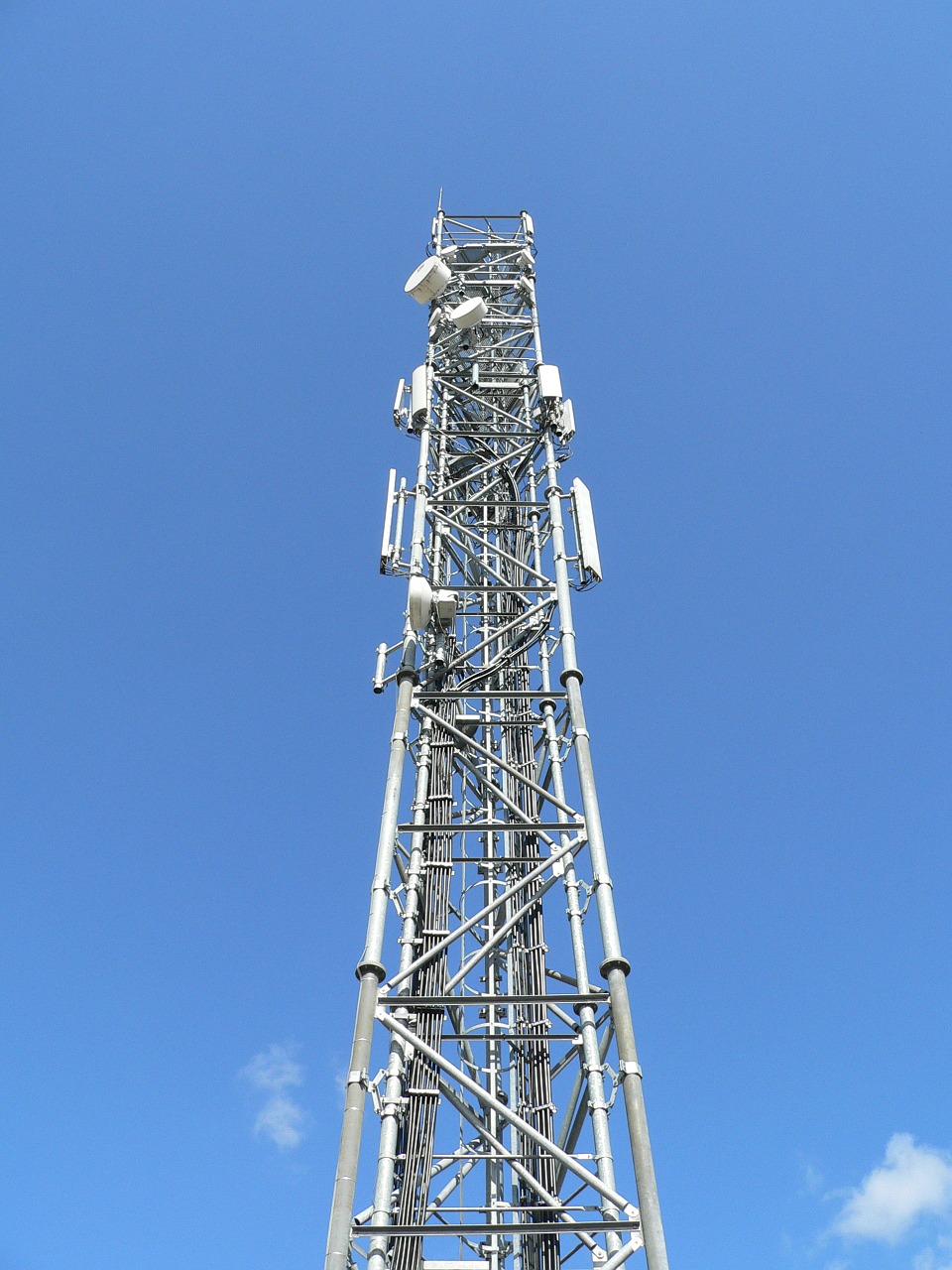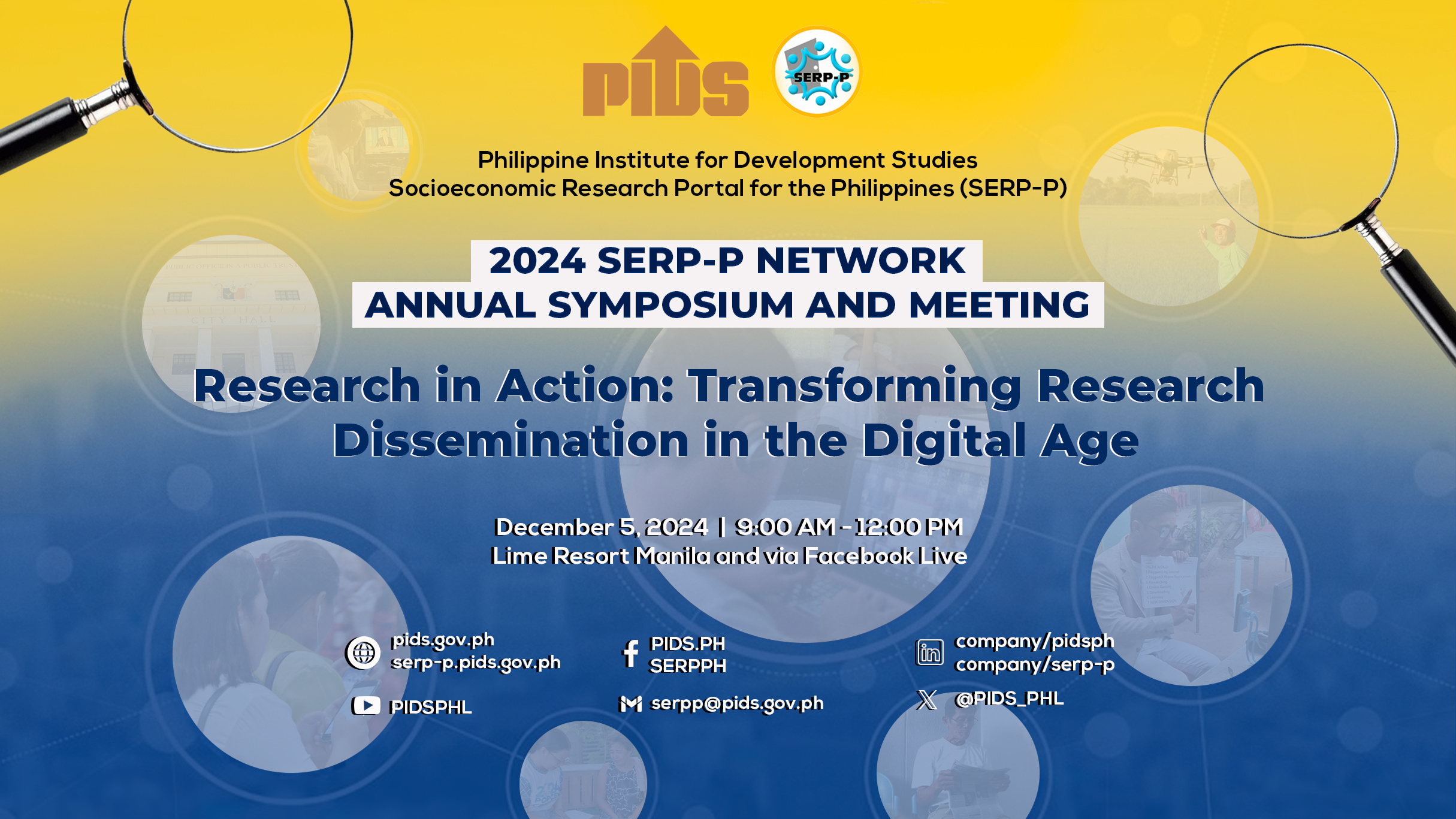Several studies have shown that increasing internet penetration can improve economic growth and income levels. However, in the Philippines, the digital infrastructure’s reliability, affordability, and security remain an issue. This has become more apparent during the pandemic as inadequate information and communications technology (ICT) infrastructure widened the digital divide. This Policy Note analyzes the infrastructure gap and digital divide from a supply-constrained lens. Specifically, this study looks at the level of access of communities (barangays) and households to ICT infrastructures and services. The study notes that outdated laws have stifled the growth of internet service providers. Hence, the government should remove regulatory barriers and expand market opportunities to enable players to invest, build, and innovate. It also recommends that the government’s digital infrastructure investments be targeted and limited to network segments and areas where the market fails to deliver.
Citations
This publication has been cited 7 times
- BusinessMirror. 2023. Make customers feel they are fairly treated. BusinessMirror.
- Habito, Cielito. 2021. The great divide. Inquirer.net.
- Laforga, Beatrice. 2021. Public investment seen needed in areas with low digital penetration. BusinessWorld.
- Lamentillo, Anna Mae. 2022. Why internet access has become a human right. Manila Bulletin.
- Peña-Reyes, Ser Percival. 2022. You are what you eat. BusinessMirror.
- Rosales, Elijah Felice. 2021. PIDS backs telco ownership bill. Philippine Star.
- Simeon, Louise Maureen. 2021. Changes in Public Service Act hasten digital shift. Philippine Star.

